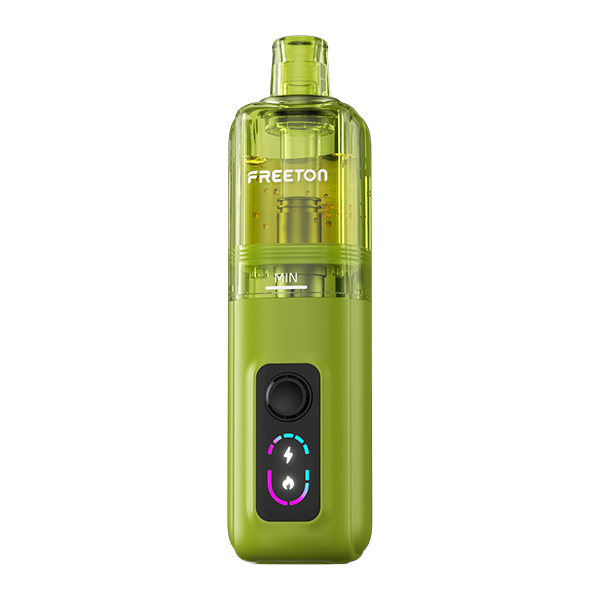
Most people know that smoking cigarettes is bad for your health, but many are still confused about how e-cigarettes compare to traditional cigarettes. The debate has raged on for years as scientists continue to study the effects of electronic cigarettes and as governments try to regulate them. While there's no doubt that cigarette smoke is […]
Most people know that smoking cigarettes is bad for your health, but many are still confused about how e-cigarettes compare to traditional cigarettes. The debate has raged on for years as scientists continue to study the effects of electronic cigarettes and as governments try to regulate them. While there's no doubt that cigarette smoke is bad for your health, researchers have found that vaping may be less harmful than traditional tobacco products. However, more research is needed before we can say with certainty whether e-cigarettes are the safer choice for smokers who want to quit.
Electronic cigarettes don't contain tobacco and thus don't produce the chemicals present in secondhand smoke.
The biggest benefit of e-cigarettes is that they don't produce secondhand smoke. While tobacco products are the leading cause of preventable death in the U.S., secondhand smoke can be just as dangerous--perhaps even more so, since it contains more than 7,000 chemicals and toxins that are harmful to our bodies.
Electronic cigarettes don't contain tobacco and thus don't produce the chemicals present in secondhand smoke, making them safer for others around you than traditional cigarettes or other tobacco products like hookahs and cigars (which also have their own sets of health risks).

The nicotine in electronic cigarette liquid is derived from tobacco, although it's not comparable to cigarette smoke.
Nicotine is the addictive substance in cigarettes, and it's what keeps smokers coming back for more. Nicotine is also present in e-cigarettes--but not in the same concentration as it is in tobacco.
While there are many different types of e-liquids, most contain some amount of nicotine derived from tobacco plants. However, this amount varies significantly: some brands sell liquids with zero milligrams (mg) per milliliter (ml), while others boast up to 30 mg/ml or more! Compared to traditional cigarettes which contain anywhere from 12 mg to 20 mg of nicotine per gram of tobacco leaf (around 1/3rd of an ounce), electronic cigarettes have far less concentrated levels of this addictive substance--typically between 1 mg and 2 mg per ml (or 0% - 5%).
Electronic cigarettes are about as safe as nicotine patches.
Tobacco products are regulated by the FDA, but electronic cigarettes are not. The FDA has determined that nicotine patches are safe and effective in helping people quit smoking. Nicotine is a stimulant that can be toxic if consumed in high doses. However, it's also present in many foods and drugs that we consume every day without harm--like coffee!
In fact, studies have shown that e-cigarettes contain fewer toxins than traditional cigarettes because they don't burn tobacco leaves or produce smoke (just vapor). But even if you're not convinced about their safety yet, there's one more thing you should know: Electronic cigarettes may be safer than traditional ones but they're still not harmless! Just like any other drug or medicine out there today - including nicotine patches - e-cigs have side effects including headaches and nausea which will vary from person to person depending on how much you use them over time
E-cigarettes are a safer alternative to traditional cigarettes.
E-cigarettes are a safer alternative to traditional cigarettes.
E-cigarettes are not safe, but they are safer than regular cigarettes.
E-cigarettes are not a safe alternative to regular cigarettes.
E-cigarettes are a healthier alternative to regular cigarettes.
E-cigarettes are a popular way to quit smoking.
E-cigarettes are a popular way to quit smoking. They're an alternative to traditional cigarettes, but they aren't safe. In fact, they may be just as bad for you as smoking regular cigarettes or even worse.
E-cigarettes have been around since the 1960s and have gained popularity in recent years as many people try to reduce their tobacco consumption or stop smoking altogether. The device works by vaporizing liquid nicotine into an aerosol that's inhaled by the user; it looks and feels like smoke but doesn't contain any combustion products (like tar) found in traditional cigarettes and cigars. E-cigarette makers often advertise their products as safer alternatives because they don't burn tobacco leaves--but this isn't necessarily true: Some studies show that e-cigarette smokers can still develop heart disease due to secondhand smoke exposure from other users' exhales!
E-cigarettes contain fewer cancer-causing and toxic chemicals than regular cigarettes.
E-cigarettes are less harmful than regular cigarettes. E-cigarettes contain fewer cancer-causing and toxic chemicals than regular cigarettes, so they don't produce secondhand smoke. While there is no proof that electronic cigarettes cause cancer, they do contain nicotine which is addictive and can be toxic if it's swallowed in large amounts.
In 2013 a study published by the International Journal of Environmental Research and Public Health found that e-cigarette vapor contained far fewer toxins than cigarette smoke does: 16 times lower levels of carbonyls (aldehydes) and 2 times lower levels of tobacco specific nitrosamines (TSNAs), which are known carcinogens found in traditional cigarettes.
Vaping is safer for your heart, arteries and lung function than smoking cigarettes.
You might have heard that e-cigarettes contain harmful chemicals, but the reality is that they don't. E-cigarettes don't produce carbon monoxide or tar, which are two of the most dangerous ingredients in cigarettes. They also don't produce secondhand smoke--the harmful stuff that's produced when you breathe in someone else's tobacco smoke. So what does this mean for your heart?
- If you're using an e-cigarette instead of smoking, it means your lungs will be healthier and stronger!
- And because your arteries won't be clogged with tar anymore (which causes high blood pressure), they'll work better too!
The electronic cigarette industry is not subject to government regulations like traditional tobacco products.
The electronic cigarette industry is not subject to government regulations like traditional tobacco products. Because e-cigarettes have only been around for a few years, there's no research on the long-term health effects of using them.
It's also important to note that while e-cigarettes may be safer than regular cigarettes, they still contain nicotine--a drug that can be addictive and cause serious side effects if you use too much of it or use it over an extended period of time.
E-cigarettes don't produce secondhand smoke, so others aren't exposed to harmful chemicals when you vape at home.
While e-cigarettes don't produce secondhand smoke, they do contain nicotine. And while it's true that the chemicals in cigarettes are far more harmful than those in e-cigarettes, nicotine itself can still be dangerous. For example, if you have heart problems or high blood pressure and use an e-cigarette regularly (more than once daily), your risk of having a heart attack or stroke increases significantly compared with people who don't use these devices at all.
In addition to this potential health risk from using e-cigarettes regularly over time, there's also a concern about their effect on others around you when you use them indoors: Even though there are no harmful chemicals coming out of your mouth like there would be if you were smoking traditional cigarettes (which emit up to 7 times as many carcinogens as electronic ones), some studies have shown that secondhand vapor may contain small amounts of formaldehyde--a known carcinogen--and other toxic substances such as acetaldehyde and benzene.
What the science says about the safety of e-cigarettes
Many people think e-cigarettes are the safer choice for smokers who want to quit, but more research is needed before it can be said that they're definitely a healthier alternative.
Many people think e-cigarettes are the safer choice for smokers who want to quit, but more research is needed before it can be said that they're definitely a healthier alternative.
E-cigarettes contain fewer carcinogens and toxins than regular cigarettes, but they still contain some of both. Additionally, there is some concern about how much nicotine an e-cigarette user is getting from his or her device and whether that amount could lead to addiction over time.
Conclusion
Electronic cigarettes are an affordable, convenient way to quit smoking. They're also much safer than traditional cigarettes because they don't contain any tobacco or tar. However, there's still a lot of research that needs to be done before we can say with certainty that vaping is a healthier alternative than traditional cigarettes.































